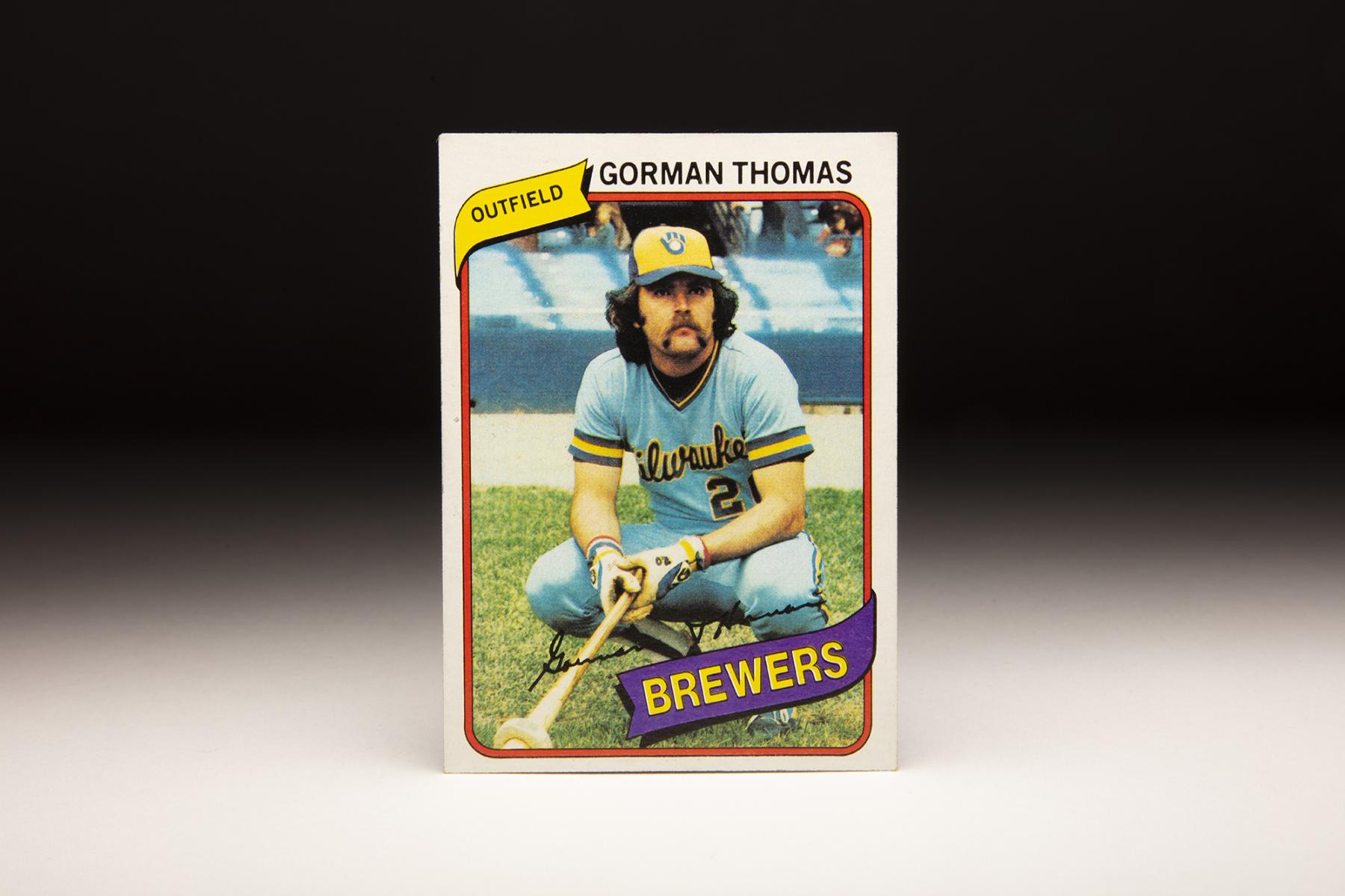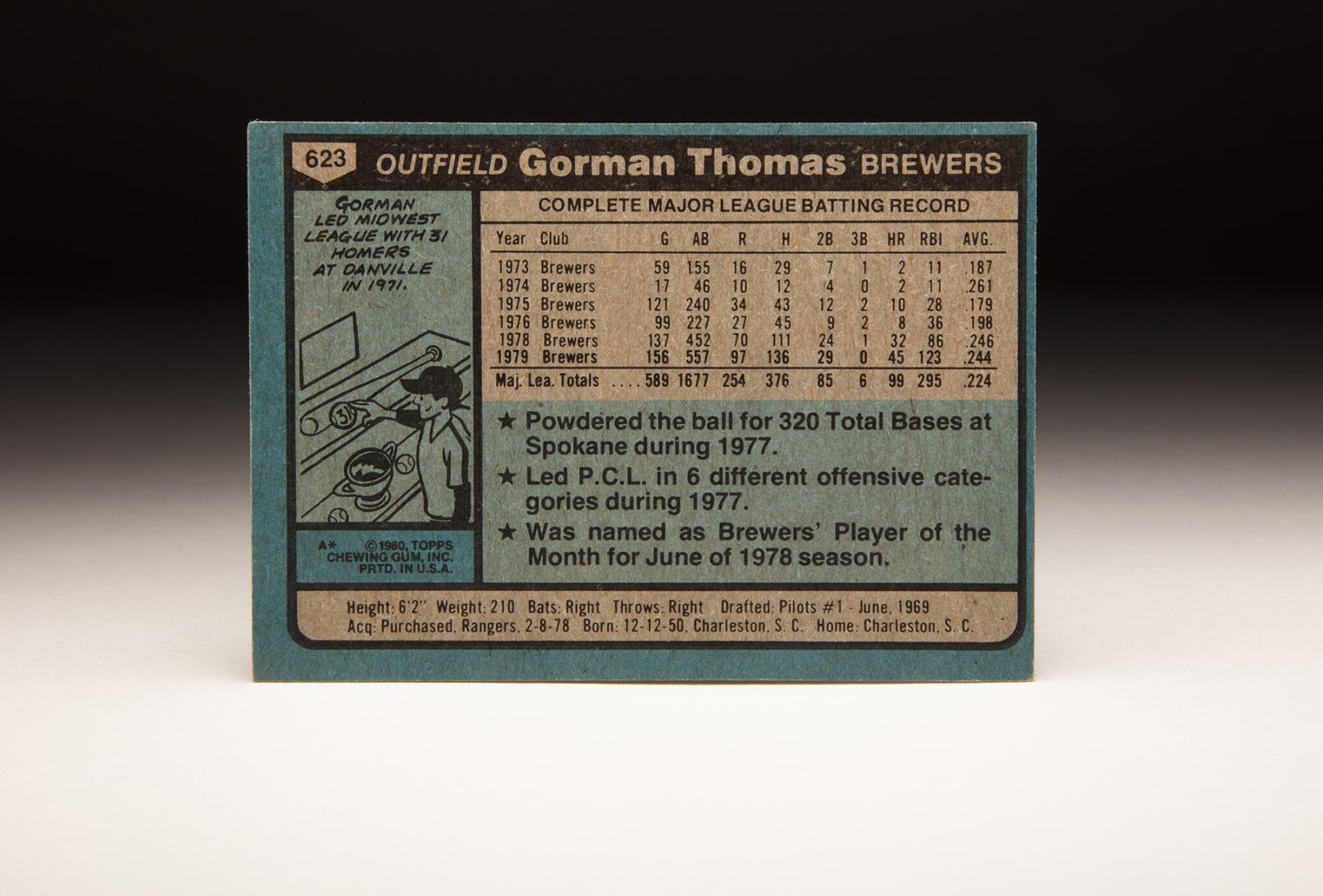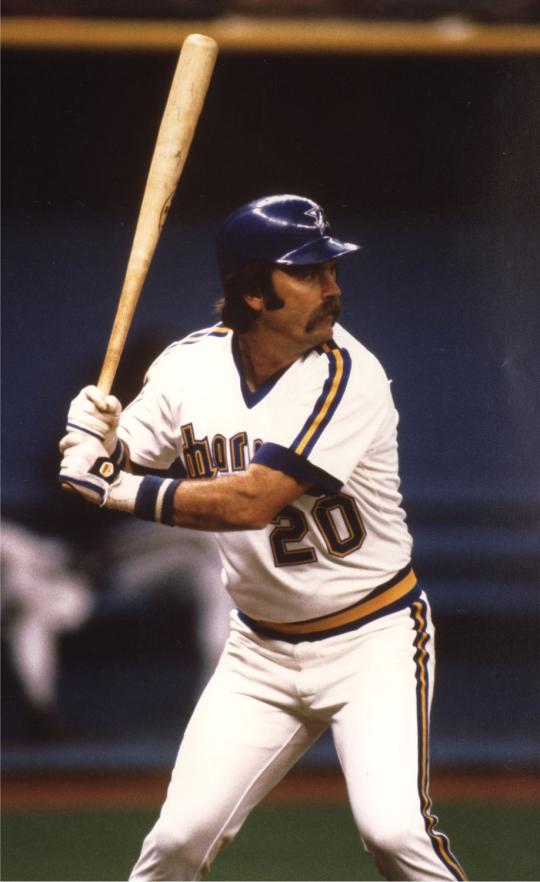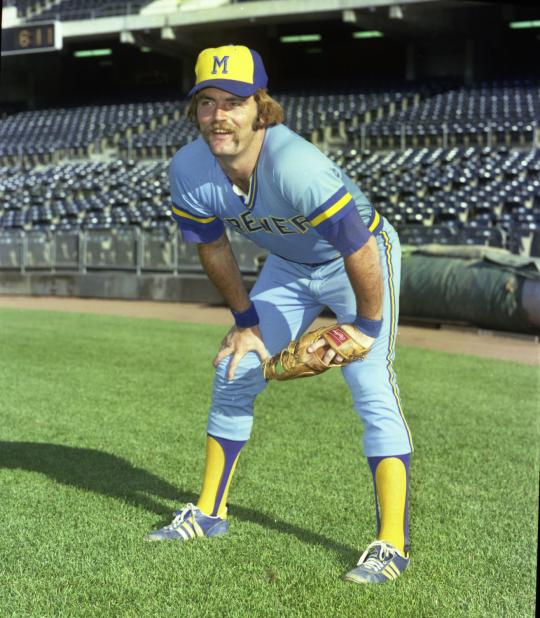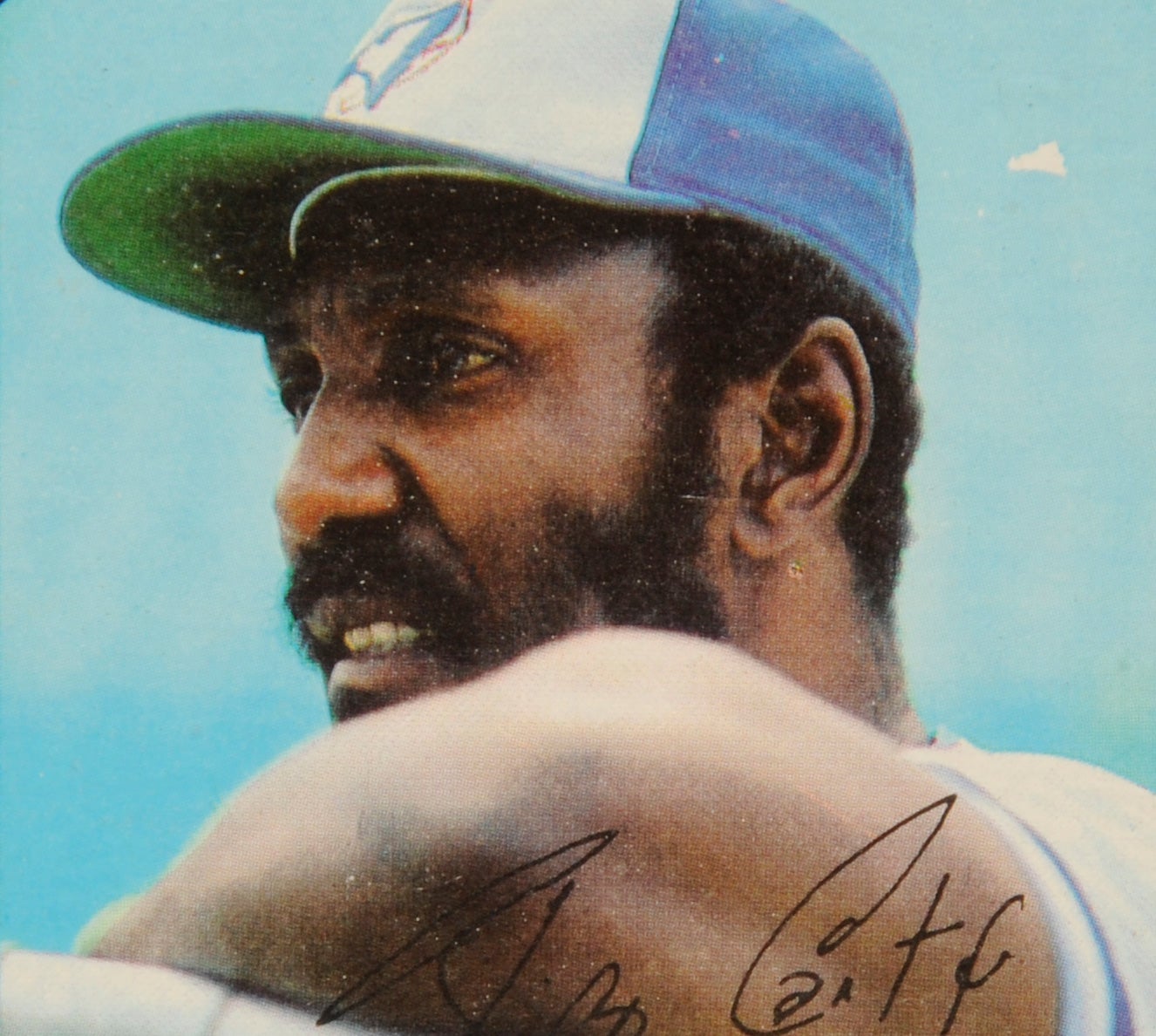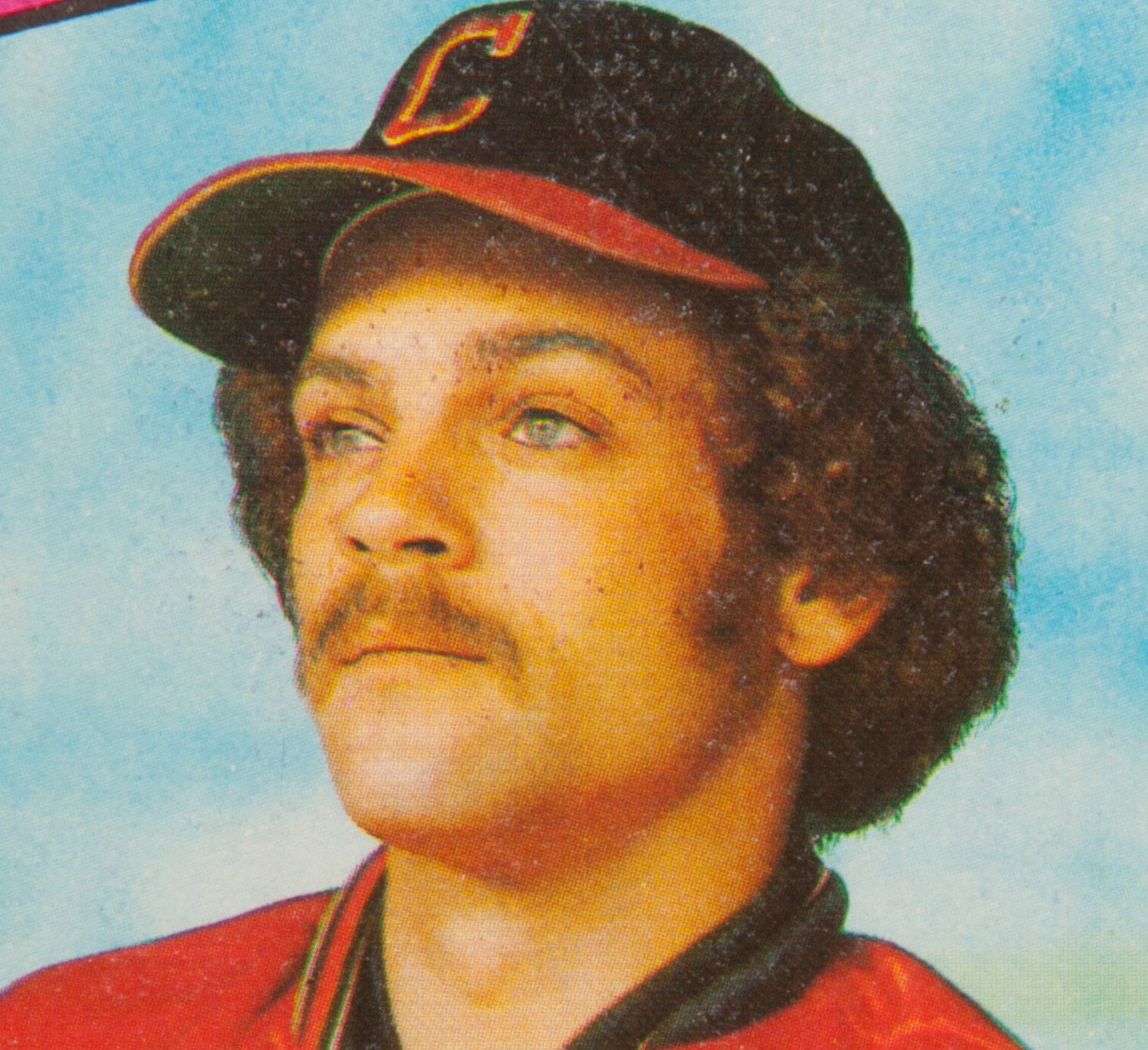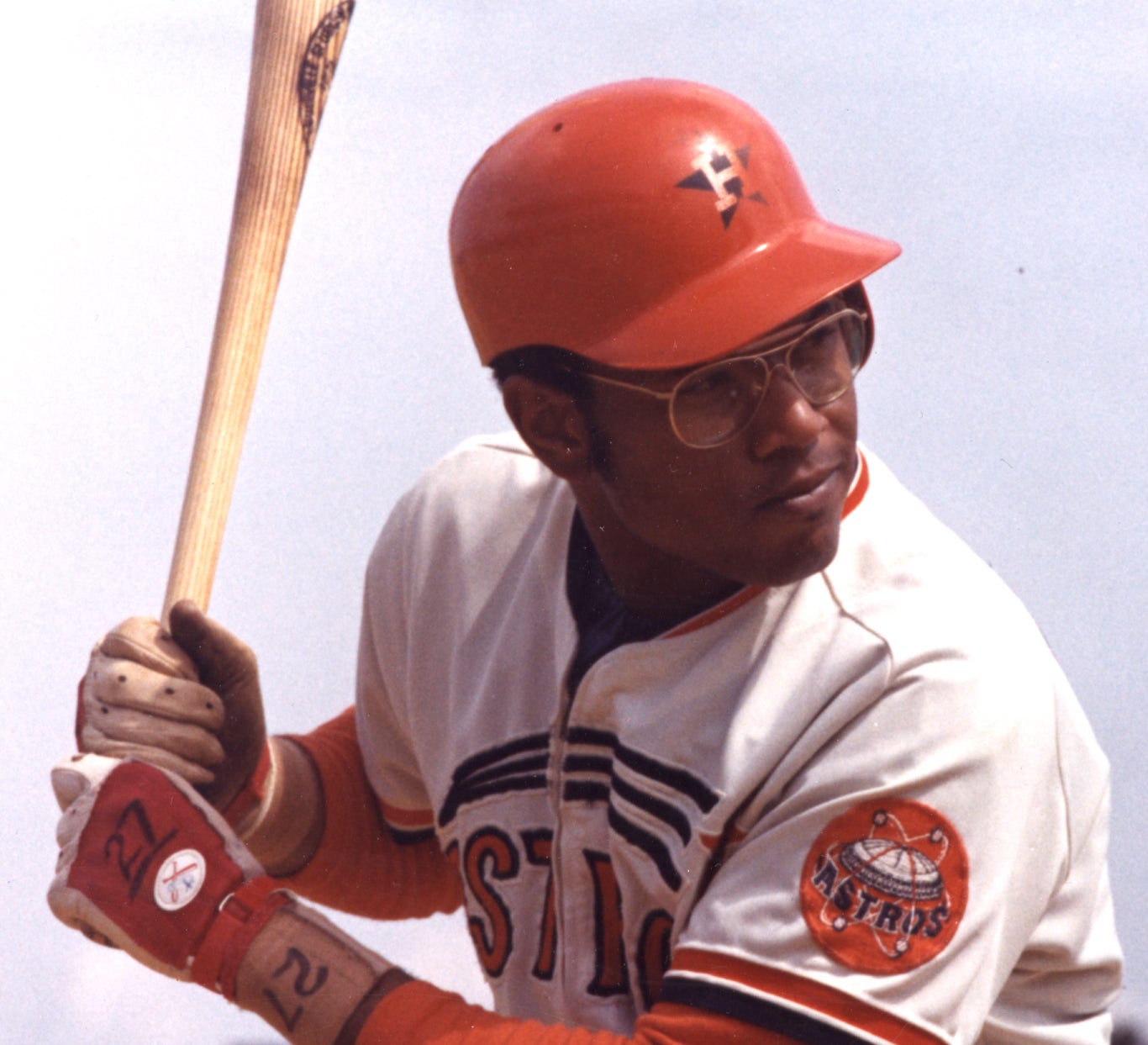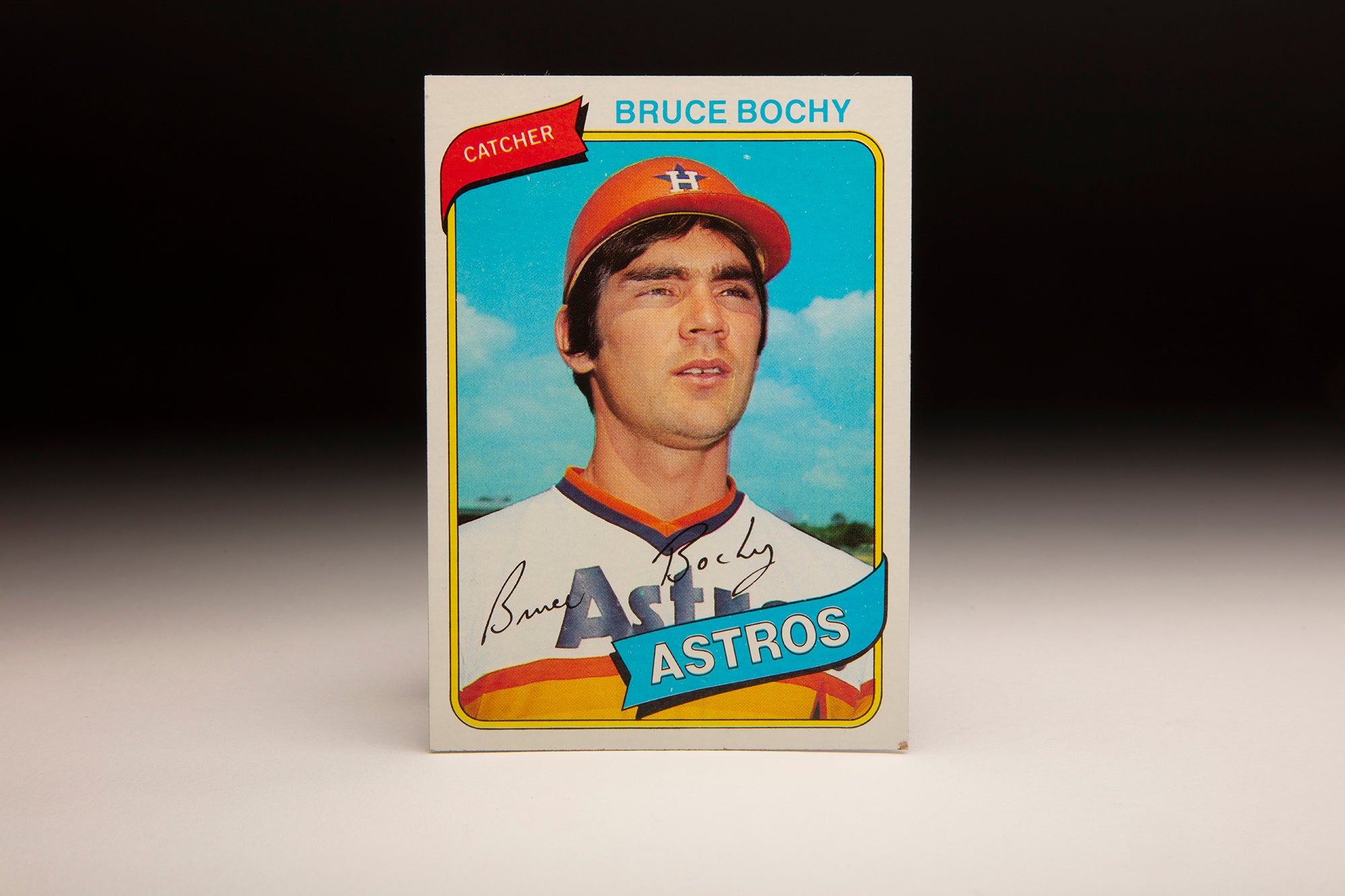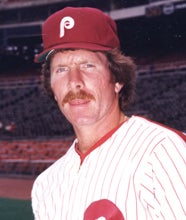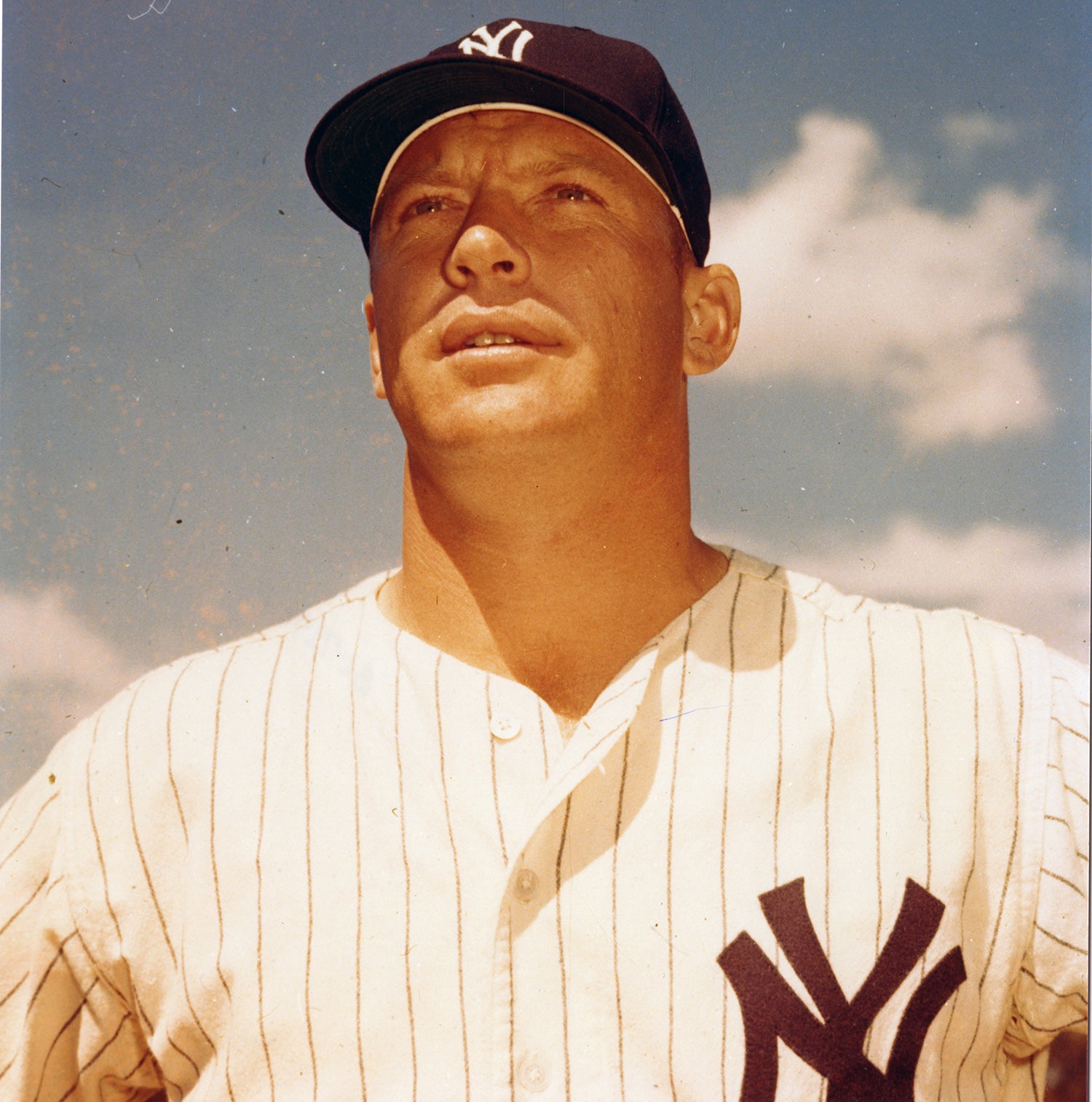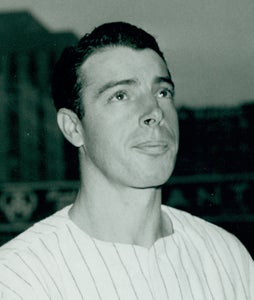- Home
- Our Stories
- #CardCorner: 1980 Topps Gorman Thomas
#CardCorner: 1980 Topps Gorman Thomas
His place in the game’s history is secure, because Gorman Thomas will always be the only first-round draft choice of the Seattle Pilots.
But Thomas was also a revolutionary player – one who was willing to pile up strikeouts in exchange for game-changing power. That bargain made Thomas one of the most unique hitters of his generation.
James Gorman Thomas was born Dec. 12, 1950, in Charleston, S.C. He excelled in athletics throughout high school and was taken by the Pilots with the 21st overall selection in the June 1969 MLB Draft.
Hall of Fame Membership
There is no simpler, and more essential, way to demonstrate your support than to sign on as a Museum Member.
Official Hall of Fame Apparel
Proceeds from online store purchases help support our mission to preserve baseball history. Thank you!
Thomas, then a shortstop, was assigned to the team’s rookie ball team in Billings, Mont., of the Northwest League. He hit .296 in 41 games that summer, earning a promotion to Class A Clinton of the Midwest League in 1970. There, the 19-year-old Thomas hit just .212, but he returned to the Midwest League in 1971 and hit 31 homers. And in a sign of things to come, Thomas struck out 170 times in 121 games.
Thomas spent all of the 1972 season with Double-A San Antonio, hitting 26 home runs and striking out 171 times in 135 games. Now an outfielder with a Brewers team that had moved from Seattle in 1970, Thomas earned the Opening Day job as Milwaukee’s right fielder in 1973.
“We’re going to give him a chance to put it all together,” Brewers manager Del Crandall told the Associated Press on the eve of the 1973 season opener. “If he does, we’ve got a hell of a ballplayer.” Crandall was true to his word and was patient with Thomas, who was hitting .135 with one home run at the end of April and .202 with the same lone home run by the end of May. But by June 28, Thomas was hitting .213 with one home run, 10 RBI and 52 strikeouts in 46 games. On July 2, the Brewers sent Thomas to Triple-A Evansville, where he hit .212 in 46 games before being recalled to Milwaukee in September. Thomas finished the 1973 season with a .187 batting average in 60 games with Milwaukee. He spent most of 1974 with Triple-A Sacramento, putting up a monster season – aided by a left field wall in Sacramento that was 233 feet from home plate – where he hit 51 home runs with 122 RBI in 138 games, earning a September call-up to Milwaukee.
Then in 1975, Thomas again made the Brewers’ Opening Day roster, moving into the starting lineup in June as the team’s center fielder. Thomas was hitting .303 as late as July 6, but went just 16-for-151 (a batting average of .106) over his final 68 games. He finished the season with a .179 batting average with 10 home runs and 28 RBI in 121 games.
Thomas’ 1976 season was similar to 1975 as he hit .198 with eight homers and 36 RBI in 99 games with Milwaukee. He spent all of 1977 with Triple-A Spokane, hitting .322 with 36 home runs, 114 RBI and 105 walks in 143 games.
Following the 1977 season, the Brewers sent Thomas to the Rangers as a player-to-be-named-later in a deal that brought Ed Kirkpatrick to Milwaukee on Aug. 20, 1977. But the Brewers purchased Thomas’ contract from the Rangers on Feb. 8, 1978 – and it was later revealed that the deal was simply a way for the Brewers to open a roster spot during the winter of 1977-78.
So by the time the 1978 season rolled around, it was clear that it was now or never for the 27-year-old Thomas. Brewers manager George Bamberger made Thomas his Opening Day starter in center field, and Thomas proceeded to strike out four times in four at-bats against the Orioles. But the next day, Thomas was 2-for-3 with a grand slam and five RBI. Three days later, Thomas hit a pair of home runs against the Yankees. “All I want him to do is hit .250,” Bamberger told the Associated Press, “and I know he’ll hit 20 home runs.” Thomas finished the 1978 season with a .246 batting average, 32 home runs and 86 RBI in 137 games as the Brewers’ center fielder. The next year, Thomas led the American League with 45 home runs – the most by an American League center fielder since Mickey Mantle hit 54 in 1961. And Thomas became the first AL center fielder other than Joe DiMaggio or Mickey Mantle to hit at least 45 homers in one season. Thomas also struck out 175 times in 1979, tying the AL record set by Dave Nicholson in 1963.
But by showing he could keep his batting average around the .250 mark (Thomas hit .244 in 1979) – and demonstrating that he was a consistent fly catcher in center field – Thomas established himself as a force on a young Milwaukee team that was headed for greatness.
Thomas hit 38 home runs to go with 105 RBI (and 170 strikeouts) in 1980, then hit 21 home runs in 103 games while helping the Brewers advance to the postseason for the first time during the strike-shortened 1981 campaign – also earning his first All-Star Game berth that year.
In 1982, Thomas led the majors with 39 home runs – batting out of the No. 6 spot in the order for most of the year for a powerful Milwaukee lineup. The Brewers won their first-and-only AL pennant that year, and Thomas had three RBI in the Brewers’ seven-game loss to the Cardinals in the World Series.
The following year, Thomas was hitting just .183 with five homers in 46 games when he was dealt to Cleveland with Ernie Camacho and Jamie Easterly in exchange for Rick Manning and Rick Waits. He finished the year with a .209 batting average, 22 home runs and 69 RBI in 152 games.
Even as he aged, Thomas remained an everyday center fielder. In 868 games from 1978-83, Thomas appeared as a designated hitter only 12 times. His 197 home runs during that time were the most of any American League player and trailed only Mike Schmidt (220) among all big leaguers.
But Thomas’ rough-and-tumble play began to take its toll in 1984 when – after being traded to Seattle on Dec. 7, 1983, with Jack Perconte in a deal for Tony Bernazard – Thomas appeared in just 35 games due to a rotator cuff injury that effectively ended his ability to play the outfield.
Thomas returned as a DH in 1985, hitting 32 home runs in 135 games. But after hitting .194 in 57 games to start the 1986 season, the Mariners released Thomas on June 25. He flirted with retirement over the next few days, but he returned to the Brewers three weeks after his release, hitting .179 in 44 games before the Brewers released him on Oct. 16. Nine days later, Thomas announced his retirement. “I could get interest from somebody else’s camp,” Thomas told writer Tracy Ringolsby in the Tampa Tribune. “But I’d rather leave this way. If I can’t play in Milwaukee, I don’t want to play anywhere.” Thomas finished his 13-year career with 1,051 hits, 268 home runs, 782 RBI and a .225 batting average. He struck out 1,339 times, an average of slightly less than one strikeout per game he played. But Thomas also proved that there was a place in the game for low-contact, high-power players – especially ones who could play a premium defensive position like center field. His original team – the Pilots – is no longer around. But Gorman Thomas’ style of play is still a hit in the big leagues.
Craig Muder is the director of communications for the National Baseball Hall of Fame and Museum

